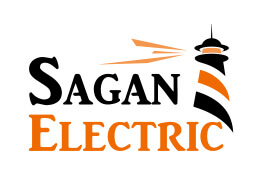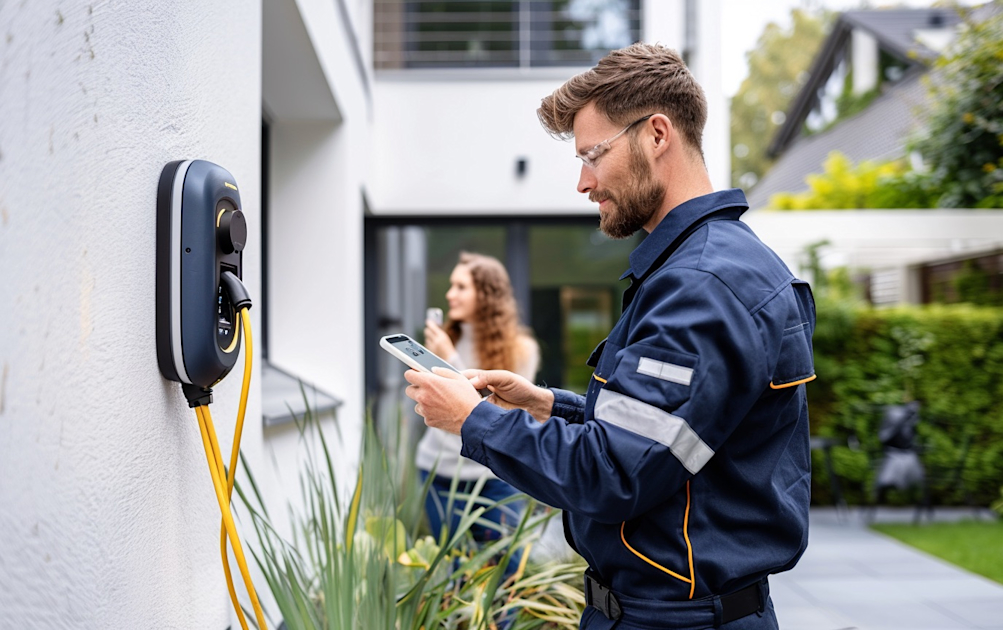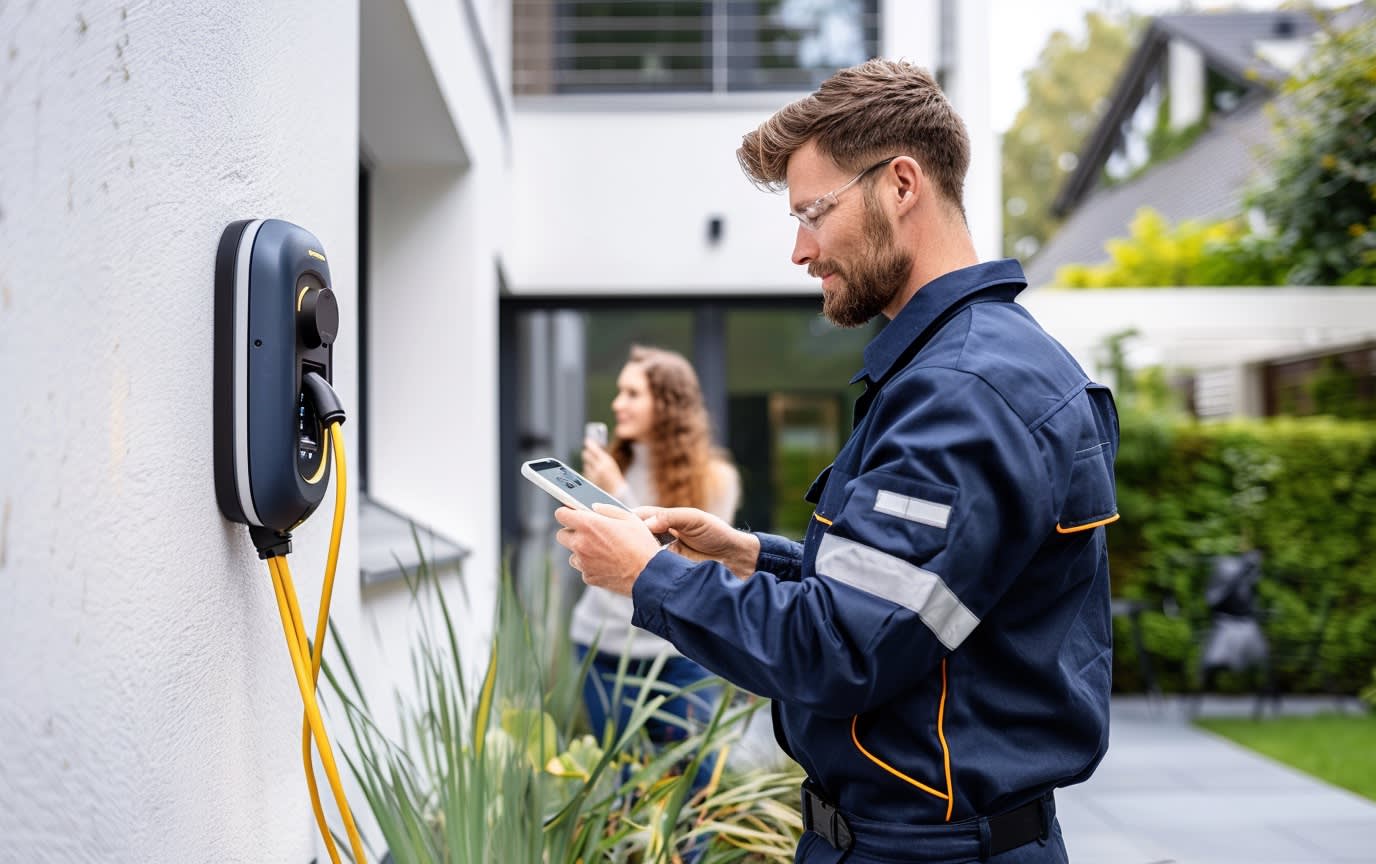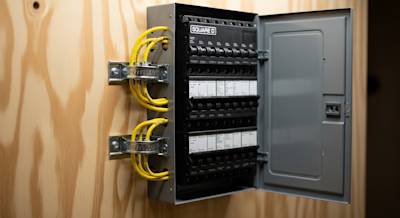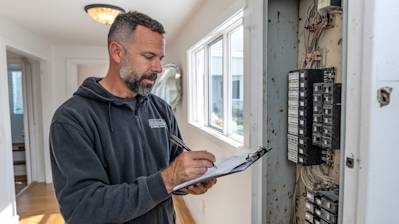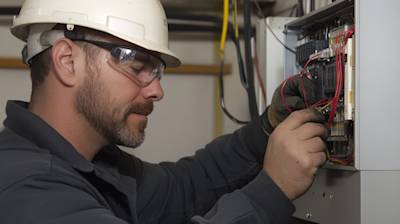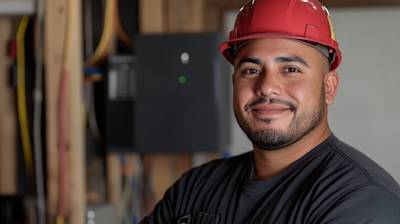In the modern world, the shift to electric vehicles (EV) is more than just a trend – it's an essential move towards sustainable living. EVs are quickly gaining popularity due to their decreased impact on the environment, superior tech features and long-term cost savings. As more people are switching to these futuristic rides, there's an increasing demand for home electric vehicle charger installations. But, a question that lingers on most EV owners' minds is, "What's the EV charger installation cost?".
The Basic Considerations of EV Charger Installation Cost
The cost to install an EV charger at home varies widely, depending on several factors. Considering all related costs, you could expect to pay between $400 to $1700 on average for a complete installation. Keep in mind, high-power, high-speed chargers and complex installation conditions can push the price towards the higher end, or beyond.
Breaking Down the EV Charger Installation Cost
To give you a clearer perspective, let's break down the elements that contribute to the total EV charger installation costs.
Cost of the Charger
The main contributing factor to the total cost is the charger itself. There are two primary types of EV home chargers – Level 1 and Level 2.
-
A Level 1 charger comes with most EVs and usually doesn't incur extra cost. It can be plugged into a standard 120V outlet, but charging speeds are very slow, making it impractical for regular use.
-
Most homeowners will want a Level 2 charger, which offers significantly quicker charging times. These charges start around the $300-$600 range but can cost closer to $2000 for top models with additional features.
Installation and Labor Costs
The next portion of spending lies in the installation, which often includes the labor and materials. The installation process requires a qualified electrician who typically charges between $50-$100 per hour. Installation can take from 2 to 8 hours or more depending on complexity. So, labor costs can range from $100-$800.
Additional Costs
Sometimes, your home’s electrical panel may need an upgrade to safely operate a high-powered charger. Costs for panel upgrades vary, but expect to pay anywhere from $1000 to $2500.
What Influences the Cost of EV Charger Installation?
There are several variables which can influence the cost of installing an electric vehicle charging station at home.
Extension or Wiring Needs
If the charger needs to be placed far from the electrical panel, additional wiring and possibly conduit will be needed. The prices for these services fluctuate based on your proximity to the main panel and the complexity of the job.
Permit and Inspection Fees
Permit and inspection fees can also influence the total cost. It is crucial to check local regulations for pricing information.
Installation Complexity
The complexity of the installation can also significantly impact the cost, such as if there’s a need for trenching or if the charger needs to be hardwired rather than plugging it into an existing outlet.
How to Offset EV Charger Installation Cost?
Although the initial costs can seem steep, there are several ways to offset the charger installation costs.
Federal Tax Credits
You may be eligible for federal and local tax credits for installing an EV charger at your home. It's worth researching to see what rebates and incentives are available in your area.
Lower Running Costs
While paying upfront for an EV charger installation might seem much, it's crucial to keep in mind that running an electric car tends to be significantly cheaper compared to gas-powered cars. Plus, charging your EV at home is usually less expensive than public charging stations.
Given the increasing rise of electric vehicles, having a home EV charger is not only a convenience, it’s an investment. By understanding the essential factors governing the EV charger installation cost, you can make a well-informed decision.
Frequently Asked Questions about EV Charger Installation Cost
What factors affect the cost of installing an EV charger at home?
The cost of installing an EV charger at home can be affected by several factors. These include the type of charger you choose, the electrical requirements of your property, labor costs in your area, whether or not you need to upgrade your electrical panel, and the cost of any necessary permits or inspections.
How much does it generally cost to install an EV charger?
Installation costs for an EV charger at home can vary widely, from around $500 to upwards of $2000. This includes the cost of the charger itself, which can range from $300 to $600 for a Level 2 charger, and the labor costs associated with the installation.
Does the type of EV charger impact the cost of installation?
Yes, the type of charger does factor into the cost. Level 1 chargers, which simply plug into a standard electrical outlet, are the least expensive option, often costing little or nothing to install. Level 2 chargers, which require dedicated circuitry and professional installation, are more expensive. DC Fast Chargers are the most expensive to install due to their complex electrical requirements and the necessary infrastructure.
Can government incentives or rebates help offset the cost of EV charger installation?
Yes, many local, state, and federal programs offer incentives or rebates to assist with the cost of installing an EV charger at home. The exact value of these incentives varies by location and program, so it is recommended to research potential incentives in your area before proceeding with installation.
Is the cost of an EV charger installation worth it?
While the upfront cost of installing an EV charger at home can be significant, the long-term savings can make the investment worthwhile. Charging your electric vehicle at home is often cheaper than using public charging stations, particularly if you charge during off-peak hours. Plus, the convenience of being able to charge your vehicle at home can be a significant benefit.
Does the cost of EV charger installation include the charger itself?
Not always. Some quotes for EV charger installation may not include the cost of the charger itself. Be sure to ask whether the cost of the charger is included when getting quotes for installation, to avoid any surprises later on.
Why does the price range for EV charger installation vary so much?
The price range for EV charger installation can vary greatly due to a number of factors including the type of charger, the specific requirements of your property, whether or not you need to upgrade your electrical panel, labor costs in your area, and the cost of permits and inspections.
How long does the installation process take and does that affect the cost?
The length of the installation process can vary depending on several factors including the type of charger, the current condition of your electrical system, and the availability of the installers. As for the cost, most electricians charge by the hour, so a complex installation may incur higher labor costs.
Do I have to pay for EV charger maintenance?
Some amount of maintenance will be needed over time and this can incur additional costs. However, most of the maintenance can be conducted by the homeowners themselves. But in case of serious issues, it's safer to call a professional, which can add to the overall cost.
Pros and Cons of EV Charger Installation Cost
PROS
Government Incentives and Rebates
One of the biggest advantages of the EV charger installation cost is that many local and federal government bodies offer incentives and rebates to offset the cost. These can considerably reduce the final cost borne out of pocket.
- With the adoption of electric vehicles on the rise, many governments are actively promoting their installation through various schemes. These incentives are typically offered as tax credits or rebates and can significantly reduce the initial investment required for installing an EV charger.
- Participants in certain regions may even receive additional incentives from their utility provider or local government for installing charging stations at their home or business.
Energy Cost Saving
Once an EV charger is installed, owners generally see a significant reduction in their overall fuel costs, which can ultimately offset the cost of installation over time.
- The cost per mile to operate an electric vehicle is typically significantly lower than the cost to operate a gasoline-powered car.
- Depending on the local electricity rates and the user's driving habits, the cost savings on fuel could offset the upfront installation costs within a few years.
Added Home Value
Installing an EV charger in your home can actually increase the market value of your property, especially as electric vehicles become more prevalent.
- Potential home buyers who own electric cars may see the charger as a major benefit, potentially making the home more attractive.
- According to a study by Zillow, homes with EV chargers sold at a higher price compared to similar homes without one.
CONS
High Initial Costs
The initial investment required for an EV charger installation can be substantial and may deter some prospective users.
- The hardware cost of the charging station alone can range from a few hundred to a few thousand dollars, depending on the model and its features.
- Installation costs can also vary significantly, depending on the complexity of the installation and the electrician's rate. Certain homes may require additional electrical upgrades to support the charger, adding to the expense.
Limited Use for Non-EV Owners
If a homeowner doesn't own an electric vehicle, the charger won't offer any immediate value. The cost of installation could be seen as an unnecessary expenditure for non-EV owners.
- Even if one is planning to buy an electric vehicle in the future, the technology of EV chargers is advancing rapidly. The charger installed today might become obsolete by the time one buys an electric vehicle.
Time-Sensitive Incentives
While government rebates and incentives can help offset the cost of EV charger installation, these offers are usually time-sensitive.
- The amount of government incentives can change from year to year. Also, once a certain number of rebates have been claimed, no more may be available.
- If you miss out on the window for these incentives, you may end up paying full price for the charger and installation.
Dependence on Electricity Rates
Although using an EV charger can significantly reduce fuel expenses, these savings will depend on your local electricity rates, which can fluctuate.
- If electricity prices spike, the cost per mile to operate your electric vehicle will increase accordingly, potentially reducing your savings.
- In some areas with high electricity prices, driving an electric vehicle may not result in significant savings over a fuel-efficient gasoline-powered vehicle.
Summary
The EV charger installation cost can vary greatly depending on the type of charger and the specific requirements of your home's electrical system. Living in a technologically advanced world, it's slowly becoming a necessity to own an EV charger at home. Despite the initial cost, it'll save you a significant amount over time compared to the expenses of fueling a gasoline or diesel vehicle. Plus, there are federal and local incentives that can help offset the cost.
Making the shift to electric vehicles is not only a great way to reduce your carbon footprint, but it can also be more cost-effective in the long run. Yes, the upfront EV charger installation cost can be daunting. However, when you compare this to the ongoing costs of using petrol or diesel, and the convenience of charging your car at home, there's a clear advantage to using an EV and installing an at-home charger.
EV charger installation cost, while initially more, will save you time and money down the road. Having an EV charger at home offers you the flexibility of charging your vehicle at your convenience while eliminating the necessity of regular visits to the gas station. So if you're considering diving into the world of electric vehicles, don't let the installation cost deter you. The long-term benefits far outweigh the initial cost.
About Sagan Electric
Welcome to Sagan Electric, a trusted name in the electrical field based in sunny Sacramento, CA. We have been in business for over a decade, consistently providing reliable, efficient, and cost-effective solutions. Our professional team leaves no stone unturned in delivering high-quality services, showcasing the skills that set us apart from the rest. Our commitment to customer satisfaction, high safety standards, and innovative methods has earned us a stellar reputation in this competitive industry. Whatever your electrical need, Sagan Electric has your back!
Tags: electric vehicles, charging stations, cost breakdown,
